Sylvia Robinson was a singer, composer, and record producer who brought rap music out of the New York City clubs and popularized what was a new genre of music by forming the Sugarhill Gang.
“Rapper’s Delight” was the group’s first recording, and the record sold more than eight million copies, reached No. 4 on the R&B charts and No. 36 on Billboard’s Hot 100 in 1979. The song forever changed music by introducing rap and hip hop to the broader world.
Sylvia Robinson is also, allegedly, the person on whom Cookie Lyon on the hit television show, Empire, is generally based.
Sylvia Robinson: Early Years
Sylvia Vanderpool was born in New York City, and began recording professionally when she was only 14. Her first blues songs were recorded on Columbia Records with trumpet player, Hot Lips Page. She went on to make several other blues recordings for Columbia, performing as Little Sylvia.
In 1956 she teamed up with guitar player and singer Mickey Baker, and they performed as Mickey & Sylvia. They recorded “Love is Strange,” a No. 1 rhythm and blues song in 1957. The duo performed together until 1962 when Baker decided to move to Paris and perform solo.
Two years later, Sylvia married musician Joe Robinson, and they settled in Englewood, New Jersey. There, they decided to open Soul Sound, an eight-track recording studio. All Platinum was one of their early labels.
Sylvia took an increasing role in record-producing, and one of the groups Sylvia formed and recorded was The Moments, featuring Al Goodman, Billy Brown and Johnny Moore. Sylvia co-wrote and produced their biggest hit, “Love on a Two-Way Street.”
She also continued to record alone, and her sultry song, “Pillow Talk,” climbed the charts in 1973.
Looking for a New Path to Success
The mid-to-late 70s was a time of financial struggle for Soul Sound, and Sylvia was looking for a hit. When she heard the MCs and some DJs in the discos speaking rhythmically and doing call-and-response over percussive instrumental breaks during the dance music, she knew this new sound should go out to a wider public.
At the time, the top disc jockeys in Harlem were Eddie Cheba and DJ Hollywood. They worked separately and occasionally together, but they were in such hot demand for what we now know as rap music that they would spend their nights traveling from club to club.
DJ Hollywood was the first to establish the pattern of performing at one location for an hour and then calling ahead to the next club that he was on his way and “to get the [payment] envelope ready.” The top DJs followed Hollywood’s lead, generally charging $500 for an hour in the disco clubs that primarily catered to a well-to-do Harlem clientele.
In an article by hip hop historian DaveyD posted on “Hip Hop and Politics” (Daily News, 2013), Eddie Cheba tells of the moment when DJ Hollywood confessed to him that Sylvia Robinson had approached him first. She had wanted Hollywood and Cheba to record for her.
In the interview with DaveyD, Cheba expresses momentary, head-shaking regret but says: “We were making so much money from deejaying that making records just wasn’t our thing. We couldn’t see it.”
Sugar Hill
Having struck out with her first pick of artists, Sylvia Robinson went back to Englewood and picked up three unknown rappers. Big Bank Hank Jackson was working in a pizzeria at the time. He rapped while he worked, and when Joey Robinson, Sylvia’s son heard him, Joey invited him to audition for his mother (The New York Times, 11-11-2014). Sylvia added Wonder Mike and Master G to her plans, and within days, she had them record a 15-minute improvised rap over a track adapted from “Good Times,” an instrumental by the band, Chic.
Sugar Hill was a part of Harlem where musical legends, Duke Ellington and Billy Strayhorn, began. Over time the residential area attracted upwardly mobile African-Americans. (Today it is a historic district.) This all made Sugar Hill a fitting name when Sylvia and her husband, Joe, were looking to build a new label that they hoped would put them on the map for a new form of pop music.
So the Sugarhill Gang were formed and the result was “Rapper’s Delight,” the first hip hop song to become a commercial hit.
“Rapper’s Delight”
Initially the Robinsons sent out a three-minute version of the song to radio stations but as word got out there was a 15-minute cut, everyone wanted the longer recording because the radio listeners couldn’t get enough of it.
The record sold eight million copies, reached No. 4 on the R&B charts, and No. 36 on Billboard’s Hot 100.
Sylvia went on to record other rappers, including Grandmaster Flash and the Furious Five. In 1982 she produced their groundbreaking song, “The Message,” one of the first songs to carry a powerful lyrical commentary that spoke to society’s ills.
Joe and Sylvia divorced in the 1980s, and he passed away in 2000. Another tragedy befell Sylvia in 2002 when the Soul Sound studio they had devoted themselves to all those years caught fire and burned. Sylvia died in 2011.
Original Article At HuffingtonPost.com — http://www.huffingtonpost.com/kate-kelly/sylvia-robinson-pioneerin_b_6894924.html





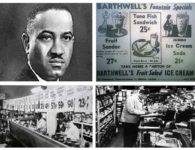




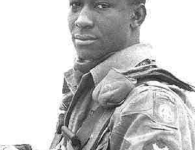
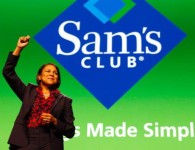


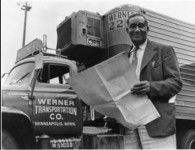
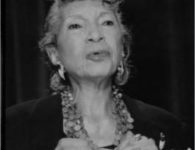


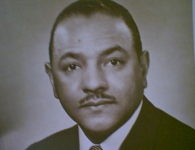


2 Comments
I loved her Pillow Talk album! It came out when I was in “Jr. High” School. Rappers Delight was awesome. It was the first rap song that I had ever heard.
I love Sylvia Robinson Pillow Talk even today. Had no ideal she had done so much. Missing you but you will never be forgotten. I ❤ you.